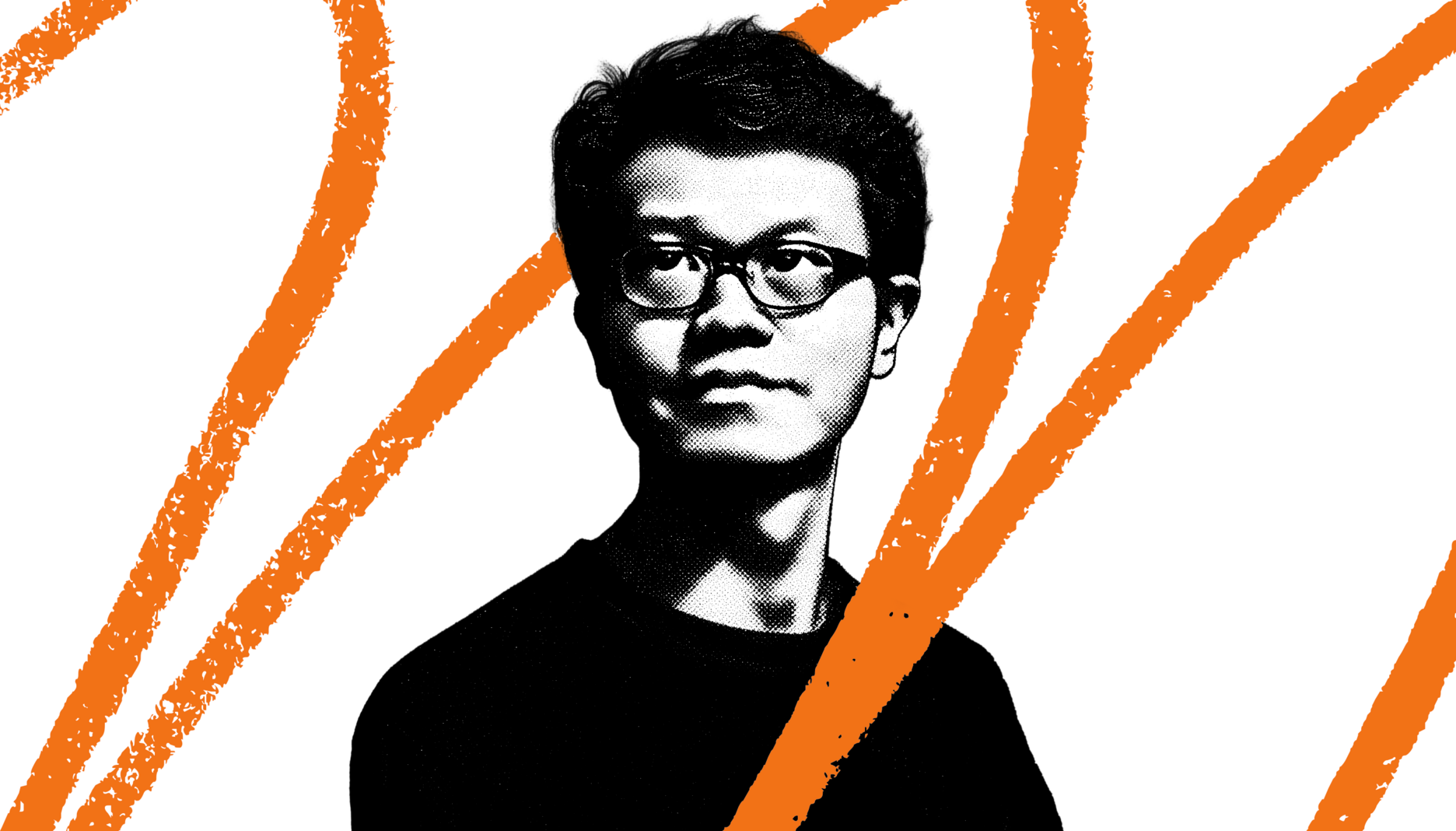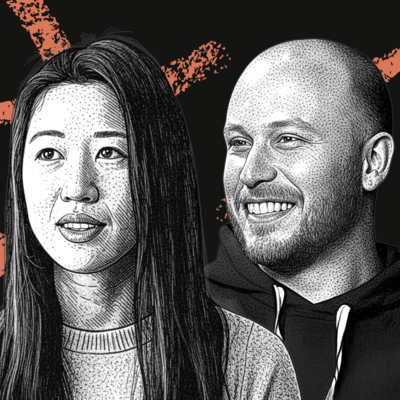
TL;DR: Today we’re releasing a new episode of our podcast AI & I. Dan Shipper sits down with Scott Wu, the cofounder and CEO of Cognition, maker of the autonomous AI coding agent Devin. Watch on X or YouTube, or listen on Spotify or Apple Podcasts. Here’s a link to the episode transcript.
Was this newsletter forwarded to you? Sign up to get it in your inbox.
The future has a way of showing up early to some places. In software engineering, one of those places is Cognition—the startup that made headlines in early 2024 with Devin, the world’s first autonomous coding agent, and more recently with its acquisition of the AI code editor Windsurf.
Scott Wu, Cognition’s cofounder and CEO, has a front-row seat to what comes next. In this episode of AI & I, Dan Shipper talks with Wu about why the fundamentals of computer science still matter in an AI-first world, the direction he sees for the short- and long-term future of programming, and why he believes we may already be living with AGI.
You can check out their full conversation here:
If you want a quick summary, here are some of the themes they touch on:
What makes a great software engineer
As AI coding tools become more popular, Wu argues, the fundamentals of computer science matter more than ever. He likens AI tools to calculators in the classroom: Initially feared as a threat to math education, they ultimately expanded what humans could do—even if we’re less diligent about memorizing multiplication tables today. AI works the same way. It may deprioritize knowing obscure libraries or low-level debugging, but it raises the stakes for core engineering skills: breaking down problems, reasoning logically, and weighing trade-offs. “[T]he reason for that is because you’re still the one at the helm making the decisions, and a lot of how you make decisions… goes back to computer science fundamentals,” Wu says.
Wu’s take on the future of programming
Wu sees the long-term future of software engineering as a steady climb up the ladder of abstraction. Just as programming once leapt from assembly to high-level languages like Python or JavaScript, he believes the next step is moving to just explaining what you want to build in plain English. In this world, engineers won’t be buried in code—they’ll describe what they want, and intelligent agents will build it. Wu likens it to Iron Man’s relationship with J.A.R.V.I.S., his AI assistant: a partner capable of executing while the human focuses on the bigger picture. “At some point you're not looking at your code,” he says, “you're just looking at your own product.” Wu adds that in a world like this, as interfaces evolve, it isn’t obvious that the keyboard and the mouse are the right input format.
But we’re not there yet. In the near term, Wu says, the reality is a spectrum of tools. On one end are the AI features focused on helping engineers code faster, like tab complete (autocomplete for code), and the ability to chat with the code base. On the other end are agentic systems, like Devin, that run in the background and tackle whole tasks on their own. For the next few years, engineers will need both. As Wu puts it, “Until agents are capable enough to handle everything and let you operate 100 percent in that higher layer of abstraction, you want to have both.”
All in a day’s work for an AI-first engineer
This blend of tools also changes what the day-to-day experience of coding feels like. Wu describes it as moving between two modes: synchronous, where you’re working side by side with the AI, and asynchronous, where you hand off tasks and let it run on its own.
He takes an example: Say you’re building a new feature for your product. The first step, he hopes, isn’t to write code but to map out a plan: which groups of users will see it, how the UI should behave for each, and what the onboarding flow should look like. This back-and-forth is the kind of conversation that’s worth having with the AI assistant in real time, almost like brainstorming with a colleague who’s read all your code.
Once you’ve fleshed out the details, the AI can take over to write the code. You switch back into synchronous mode only when it’s time to review it. “There are a lot of these kinds of flows in our work today where naturally you want to be able to go from sync to async, to sync, to async,” he says, “and I think there's still a pretty open question of how you should be working between those together.”
How Devin stacks up against Claude Code
Claude Code's arrival marked a turning point in the AI coding space. Practically overnight, many engineers—including the team at Every—shifted from tools built into IDEs, the software environments where developers normally write and manage code, to Anthropic’s new CLI-based approach, which lets you interact with your computer by typing commands directly into a terminal.
Wu credits that momentum to two things: timing—models had just reached the point where more autonomous workflows were possible—and Anthropic’s unusually polished product experience.
But he’s quick to note that the command line itself isn’t the magic. “It’s less a question of, well, where do you go to interact with your tools? It is more a question of what do the tools do for you? And how do you expect to work with them?” he says.
From Wu’s perspective, Claude Code takes a distinctive approach: It “hands the reins over to your AI buddy to take the wheel of your computer,” running commands directly in your environment as if the AI itself were at the keyboard. Devin, by contrast, is more like “the software engineer sitting next to you.” It operates in its own dedicated cloud environment, spins up the repo, and learns over time how to test and refine its work.
AGI isn’t coming—it’s already here
When asked to explain why he thinks AGI has arrived, Wu admits he’s being “a little bit facetious”—but only a little. He argues that by many of the benchmarks people would have used a decade ago, we’re already there. A decade ago, the test for AGI was whether a system could pass the Turing test, solve hard technical problems, and operate in the world much like a human. Today’s models can convincingly converse like humans, win gold medals at elite math and programming competitions, and act through agents capable of reasoning and interacting in real-world environments. By that standard, Wu says, AGI is here.
At the same time, Wu cautions against drawing a hard line for what “counts” as AGI. Some people define it as the moment humans have nothing left to do, or when machines can perform 80 percent of knowledge work. But he argues those thresholds are misleading: Humans have always redefined work around what technology can’t yet do. The tractor, for instance, automated far more than 80 percent of the labor that sustained people a thousand years ago. By that logic, the cutoff for AGI keeps receding. “We have a lot of levels of AI development… I'm not sure there's one hard cutoff on what counts as AGI,” he says, “but it's also very clear that we've hit a lot of the things that people would've considered insane just a few years ago.”
What do you use AI for? Have you found any interesting or surprising use cases? We want to hear from you—and we might even interview you.
Here’s a link to the episode transcript.
Timestamps
- Introduction: 00:02:02
- Why Scott thinks AGI is here: 00:02:32
- Scott’s personal journey as a founder: 00:09:27
- Why the fundamentals of computer science still matter: 00:16:55
- How the future of programming will evolve: 00:22:30
- A new workflow for the AI-first software engineer: 00:26:50
- How Devin stacks up against Claude Code: 00:29:33
- Reinforcement learning to build better coding agents: 00:40:05
- What excites Scott about AI beyond Cognition: 00:50:05
You can check out the episode on X, Spotify, Apple Podcasts, or YouTube. Links are below:
- Watch on X
- Watch on YouTube
- Listen on Spotify (make sure to follow to help us rank!)
- Listen on Apple Podcasts
Miss an episode? Catch up on Dan’s recent conversations with founding executive editor of Wired Kevin Kelly, star podcaster Dwarkesh Patel, LinkedIn cofounder Reid Hoffman, ChatPRD founder Claire Vo, economist Tyler Cowen, writer and entrepreneur David Perell, founder and newsletter operator Ben Tossell, and others, and learn how they use AI to think, create, and relate.
If you’re enjoying the podcast, here are a few things I recommend:
- Subscribe to Every
- Follow Dan on X
- Subscribe to Every’s YouTube channel
Rhea Purohit is a contributing writer for Every focused on research-driven storytelling in tech. You can follow her on X at @RheaPurohit1 and on LinkedIn, and Every on X at @every and on LinkedIn.
We build AI tools for readers like you. Write brilliantly with Spiral. Organize files automatically with Sparkle. Deliver yourself from email with Cora. Dictate effortlessly with Monologue.
We also do AI training, adoption, and innovation for companies. Work with us to bring AI into your organization.
Get paid for sharing Every with your friends. Join our referral program.
The Only Subscription
You Need to
Stay at the
Edge of AI
The essential toolkit for those shaping the future
"This might be the best value you
can get from an AI subscription."
- Jay S.
Join 100,000+ leaders, builders, and innovators

Email address
Already have an account? Sign in
What is included in a subscription?
Daily insights from AI pioneers + early access to powerful AI tools








.31.48_AM.png)


Comments
Don't have an account? Sign up!